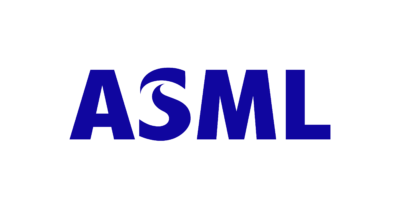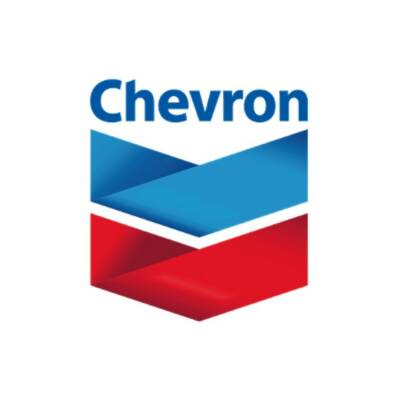Conference
The time slots for the various talks might change.
Conference Day 01
What is Decision Quality and why should you implement Decision Quality principles in your organisation?
Welcome & Overview

CEO | Decision Advisor at ThinQ Decisions
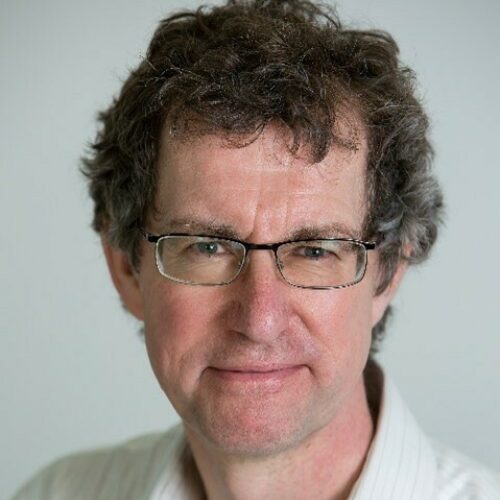
Senior Decision Quality Consultant
Welcome to DQ Conference, Norway 2022
About Trygve Botn
Trygve has experience as a Decision Science Professional from Chevron and as a consultant. He is a Fellow at the Society of Decisions Professionals and is the Founder of ThinQ Decisions, an Oslo-based decision consultancy firm. With over 15 years of energy industry experience from Chevron, Trygve has held several key roles as a Decision Professional Leader, Advisor, and Analyst in Norway, the USA, and Kazakhstan. He has applied the principles of Decision Quality (DQ) to several major investment decisions for various oil & gas projects, technology development, renewable energy, business development and commercial investments decisions, and corporate strategies. Trygve has led several organizational DQ efforts and worked to enhance methodologies and practices in framing, economics and evaluations, Value of Information, and portfolio selection.
About Peter Naylor
Pete has over 20 years’ experience as a Decision Professional. He is the Principal Technical Expert for Decision Quality in Shell and manages a project to strengthen decision making across the whole company. He helps managers to make complex decisions, taking full account of risks & uncertainties and has an extensive track record in Project Risk Management, helping managers to deliver their value promises. He has worked within integrated teams on a wide range of projects including appraisal and development strategies, refurbishment of processing facilities and asset integrity management. Pete has one wife, three children, three children-in-law, four grandchildren and one dog and he lives near Poole in Dorset (UK).
The Essential Elements of Quality Decisions
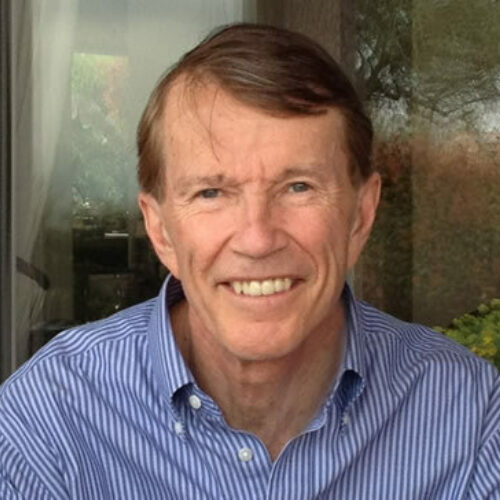
Research Professor Emeritus, Fuqua School of Business, Duke University
The only purposeful way that you can improve your life is by the decisions that you make. The rest of life just happens as a result of circumstances and decisions of others. Each of us developed our decision-making ability by trial and error. Unlike with other skills, we did not learn how to make decisions well and practice those skills to become proficient. So regardless of how good you are at making decisions, you can certainly improve. This presentation describes the fundamental elements of all decisions, about which you can develop skills to improve your professional and personal decision-making. It illustrates their relevance to all decisions using a wide range of examples. The concepts and ideas are easy to learn and practical to use.
About Ralph L. Keeney
Ralph L. Keeney is an expert on decision making and his passion is to help individuals and organizations improve their decision making skills. He received his doctorate from MIT, has been a professor at MIT, the University of Southern California, and Duke University, and created and managed the decision and risk analysis group in an engineering-environmental consulting firm. He is currently a consultant and lecturer on decision making.
Keeney is a member of the U.S. National Academy of Engineering and received an honorary doctorate from the University of Waterloo in Canada. He is the author of several books; the most recent is Give Yourself a Nudge: Helping Smart People Make Smarter Personal and Business Decisions (2020).
Decision-Making in Times of Transition
Vice President, Technology Development at Equinor
Transitioning to an always safe, high value and low carbon future require Equinor to re-focus and take a more holistic energy- and portfolio perspective. We see a growing tendency from developing and optimizing single assets/fields towards a broader portfolio/area approach – sometimes across commodities. And from more straightforward decision-making guided by common key financial parameters such as net present value towards a more holistic, multi-objective approach incorporating emissions. In this context, we need a framework to make robust and structured decisions that can deal with this more complex context – whilst correctly handling and representing uncertainty
About Elisabeth Birkeland
VP for CCS and low carbon solutions within Equinor’s Technology, digitalization and innovation unit with a focus on technology development for CCS, Hydrogen, Ammonia, and low carbon fuels like Biofuel and e-fuel. She holds a Master's Degree in geology from the University of Tromsø and started as a geologist in Statoil back in 1996. She has held various technical and leadership positions in Equinor within exploration, petech and research and technology. Through these positions, she has been working with all subsurface disciplines and has really seen the impact and the value multidisciplinary teams can create to deliver value in the O&G business. She grew up in a small industrial town in the western part of Norway that back then was heavily polluted. However, the local focus on the nature and environment back in the 1980s transformed the small town and it is today known for its beautiful nature. A small-scale transformation that has given her faith that collaboration, competence and technology are key enablers for the energy transition. Elisabeth is married and has 4 children and we are all passionate about nature and outdoor activities.
Coffee & Networking
Decision Quality: What is it and Why it is Important?
Engineering Foundation Endowed Professorship at University of Texas at Austin
What does it mean to make a good decision? Is a good decision one that has a good outcome? Or, perhaps, a good decision minimizes the chance of a bad outcome? In this session, we will address these questions by introducing the concept of Decision Quality (DQ). DQ provides a framework to help us think about the elements of a good decision. We will explore these elements and discuss some of the challenges they pose in practice.
About Eric Bickel
J. Eric Bickel is a professor in both the Operations Research & Industrial Engineering (ORIE) graduate program and the Department of Information, Risk, and Operations Management (IROM) at The University of Texas at Austin. His research interests include the theory and practice of decision analysis. He is past president of the Decision Analysis Society and a Fellow of the Society of Decision Professionals. Prof. Bickel joined Strategic Decisions Group in 1995, where he remains a partner and member of the board of directors. He has practiced decision analysis for over 25 years in a range of industries including oil & gas, electric power, life sciences, financial services, metals and mining, and packaging. He holds an MS and PhD from the Department of Engineering-Economic Systems at Stanford University.
My Decision Quality Journey
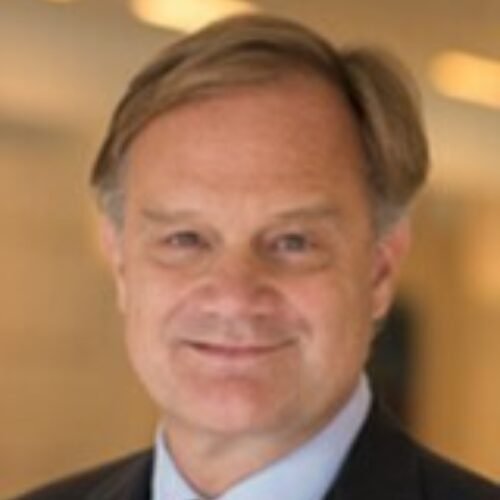
Senior Vice President Opportunity Value Assurance at Shell
In business (and in life!) decision making is one of the most important things we do, but it is hard to do this well, particularly when risks and uncertainties are involved. Industry is littered with projects that have overspent and under delivered and I have had my fair share of these over the years. I wish I had adopted DQ earlier in my career, but I am now a full convert and I’d like to share my DQ journey with you as I seek to embed the approach ever deeper within Shell.
About Bernard Bos
Member of the Senior Executive Group of Shell Plc since 2010. As from January 2021, SVP Opportunity Value Assurance, leading a team of ca. 25 professionals located in The Hague, London, and Houston. My team provides independent assurance as well as investment appraisal advice, on all capital expenditures and New Business Development proposals which go to the Executive Committee and Board. Previous role Global Head of M&A for Shell, overseeing the successful delivery of the $30 bln divestment program. Non-Executive Director at d.light, a global leader and pioneer in delivering affordable solar-powered solutions designed for the two billion people in the developing world without access to reliable energy.
Lunch & Software Roadshow
Flawed Assumptions can Lead to Flawed Decision Making
Olympic Rower, Senior Diplomat, Business Coach, and Author
This interactive session will explore the role that assumptions play in our thinking, the way we work with others and the way we solve problems.
Cath Bishop will draw on her experiences and mental skills as a high-performance athlete and former conflict diplomat who now works as a leadership development consultant with organisational leaders and their teams to improve their levels of performance.
Cath will use stories and activities to increase our awareness of the assumptions that are already present in our mind, that influence the way we behave and connect with people around us and help us to think about different strategies and tips to improve our decision-making.
About Cath Bishop
Cath competed in rowing at 3 Olympic Games, winning World Championships gold in 2003 and Olympic silver in Athens 2004. As a diplomat for the British Foreign Office for 12 years, Cath specialized in policy and negotiations on conflict issues, with postings to Bosnia and Iraq. Cath now works as a leadership consultant, executive coach, facilitator and author, and teaches on Executive Education programmes at the Judge Business School, Cambridge University and other business schools. She works with leaders across education, sport and business on developing high performing teams, resilient and inclusive environments, sustainable performance and cultures where people can thrive.
Cath speaks at events globally on topics of leadership, learning and cultural change. Her first book ‘The Long Win: the search for a better way to succeed’ was described by the Financial Times as ‘a deep and rewarding exploration of human motivation in sport, politics, business and our personal lives.
An Executive's Guide to Making Better Decisions
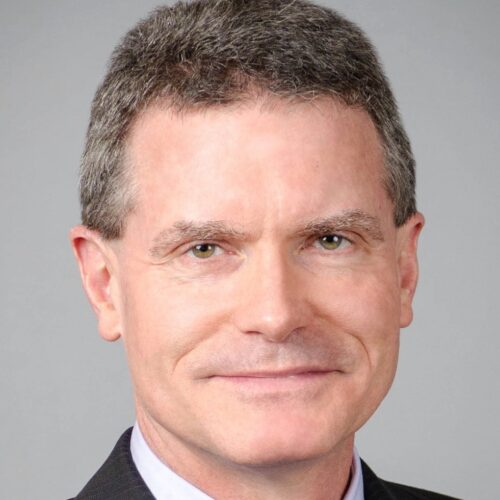
Professor of Practice, Colorado School of Mines
For most decisions, instinct and experience provide good guidelines, but in complex situations and/or times when the future is unlikely to mimic the past, our instincts can mislead. A structured approach to decision making can yield enormous insights and benefits. In addition, simply thinking in ranges – how good could things be? How bad? – will often cause us to modify our plans for the better or even change them completely. This talk will highlight straightforward techniques that decision makers can use to gain a richer understanding of complex problems and opportunities, and subsequently develop robust strategies to accomplish their objectives.
About Patrick Leach
Patrick Leach is a Professor of Practice at the Colorado School of Mines and an independent strategy consultant. He is the author of Why Can't You Just Give Me the Number? - An executive's guide to using probabilistic thinking to manage risk and to make better decisions, now in its Second Edition, and is a Past President of the Society of Decision Professionals. He has written numerous pieces about the need to move toward sustainable business practices and how to use the principles of decision science and behavioral economics to develop strategies to do so.
Tea & Networking
Insights from 30 years of Embedding and Enabling Decision Quality in an Organization
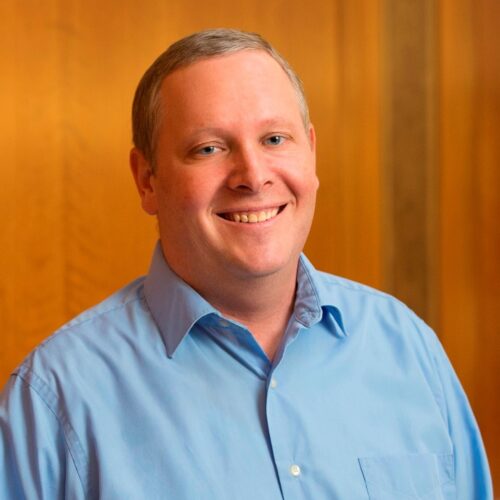
Executive Director, Portfolio Strategy and Decision Sciences at Eli Lilly & Company
Eli Lilly was awarded the Raiffa-Howard Award for Organizational Decision Quality by the Society of Decision Professionals in 2016 and currently has over 30 years of experience in enabling Decision Quality within the company. This talk will leverage Lilly’s experience to offer insights into what has (and hasn’t) worked at Lilly that should hold insights for any organization whether just starting on their journey toward Decision Quality, trying to sustain their journey through organizational changes or trying to figure out how to enhance their path.
About Charles Persinger
Charles Persinger is an Executive Director in Portfolio Strategy at Eli Lilly and leads their Decision Sciences group. He joined Lilly after receiving his MBA from Duke University. Charles has 20 years of experience helping enable Organization Decision Quality at Lilly, with a focus on drug development and portfolio management decisions within Research and Development. He and the Decision Science team at Lilly work directly with decision makers and drug development teams to enable Decision Quality across the R&D organization through a combination of direct decision consulting, developing and enabling decision processes, and education efforts. Charles led Lilly’s application for the Raiffa-Howard award, has been a member of the Society of Decision Professionals since its inception and was program co-chair of the 2021 SDP Annual Conference.
Embedding Decision Quality - Panel Discussion
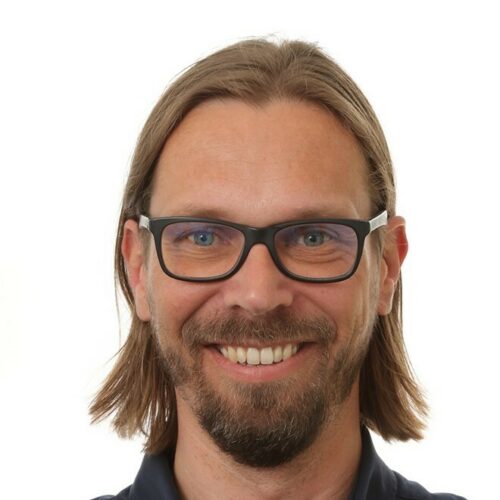
Head of ASML Strategic Decision Support

Executive Director, Portfolio Strategy and Decision Sciences at Eli Lilly & Company
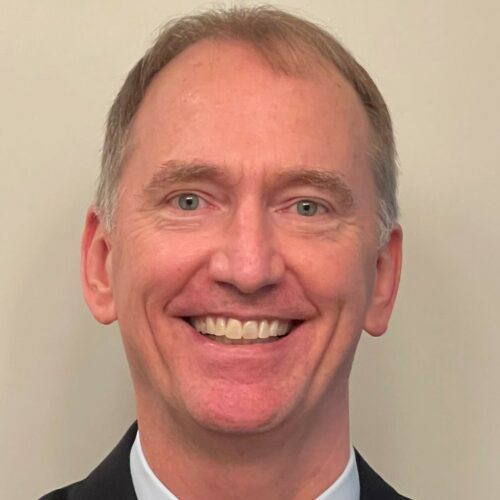
General Manager, Decision Analysis at Chevron

Research Professor Emeritus, Fuqua School of Business, Duke University
What are the benefits of embedding a Decision Quality (DQ) approach to decision-making in your company? How do different companies do this, what have they found works (or does not work) and why? Why should other companies consider embedding DQ? In this session, organizations from a wide range of industries will take part in a panel discussion on these important topics and discuss their journeys and learnings on how to embed Decision Quality thinking.
About Ritske van der Meer
Ritske van der Meer has 15+ years’ experience in strategic decision support in large international corporations of which seven years in a strategy consulting role with Strategic Decisions Group (SDG). His experience is mostly in business-to-business environments, and within a wide range of industries. He has worked extensively internationally, spending a lot of time in Western-Europe and briefly lived in California while being at SDG. At SDG in Europe, Ritske was part of the Executive Education Faculty, designing and delivering courses on the topic of Decision Quality. Ritske leads the Strategic Decision Support (SDS) team after switching back from his consulting work in 2019. In this role he guides the SDS team to address organizationally and/or financially complex strategic and high-stake business decisions across the company. Ritske is the chairman of the Dutch foundation Decisioni Sustentatio (Latin for Decision Support) which in the past 10 years has enabled a peer-to-peer network of professionals working with decision sciences in strategy and decision support in Western-Europe – aka EDPN. With that being achieved, the foundation is currently on idle and orienting for a next endeavour.
About Charles Persinger
Charles Persinger is an Executive Director in Portfolio Strategy at Eli Lilly and leads their Decision Sciences group. He joined Lilly after receiving his MBA from Duke University. Charles has 20 years of experience helping enable Organization Decision Quality at Lilly, with a focus on drug development and portfolio management decisions within Research and Development. He and the Decision Science team at Lilly work directly with decision makers and drug development teams to enable Decision Quality across the R&D organization through a combination of direct decision consulting, developing and enabling decision processes, and education efforts. Charles led Lilly’s application for the Raiffa-Howard award, has been a member of the Society of Decision Professionals since its inception and was program co-chair of the 2021 SDP Annual Conference.
About Mike Benefiel
Mike Benefiel is the General Manager, Decision Analysis for Chevron. Mike received his BSc. in Geophysical Engineering from the Colorado School of Mines. Mike has extensive energy industry experience including research, data acquisition, data processing and interpretation for energy exploration and development.
Mike joined Chevron in 2006 as a Decision Analysis Advisor and has held DA/DQ technical and leadership positions supporting teams and decision-makers throughout Chevron. He assumed his current role in October 2020.
About Ralph L. Keeney
Ralph L. Keeney is an expert on decision making and his passion is to help individuals and organizations improve their decision making skills. He received his doctorate from MIT, has been a professor at MIT, the University of Southern California, and Duke University, and created and managed the decision and risk analysis group in an engineering-environmental consulting firm. He is currently a consultant and lecturer on decision making.
Keeney is a member of the U.S. National Academy of Engineering and received an honorary doctorate from the University of Waterloo in Canada. He is the author of several books; the most recent is Give Yourself a Nudge: Helping Smart People Make Smarter Personal and Business Decisions (2020).
Refreshments & Software Roadshow
Dinner & After-Dinner Speaker with Caspar Berry - "Great Call"
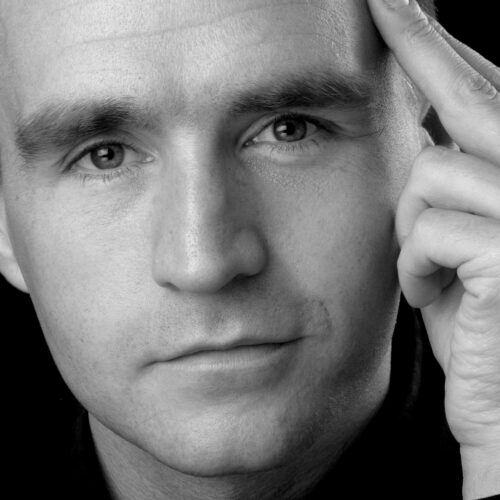
Poker Player & Motivational Speaker Specialising in the Subjects of Risk, Decision Making, Innovation & Leadership
Decision making is a skill which can be learnt. The poker playing community had the learn quickly, because if they didn't they would lose. Skills which were alien to most such as thinking long term, calculating expected value and maximising ROI became second nature to this liminal community of resource allocators wrestling with uncertainty. Caspar Berry will share his insights gained during his poker career why losing in the short term might be good for long term results.
About Caspar Berry
After starting his working life as an actor in BBC drama Byker Grove alongside Ant and Dec, Caspar studied economics at Cambridge before making the momentous decision to move to Las Vegas and become a professional poker player. Now a veteran of over 2,000 speeches in 30 countries, Caspar uses this unique experiences to deliver challenging messages about risk-taking and decision-making to maximize returns in an increasingly uncertain world.
